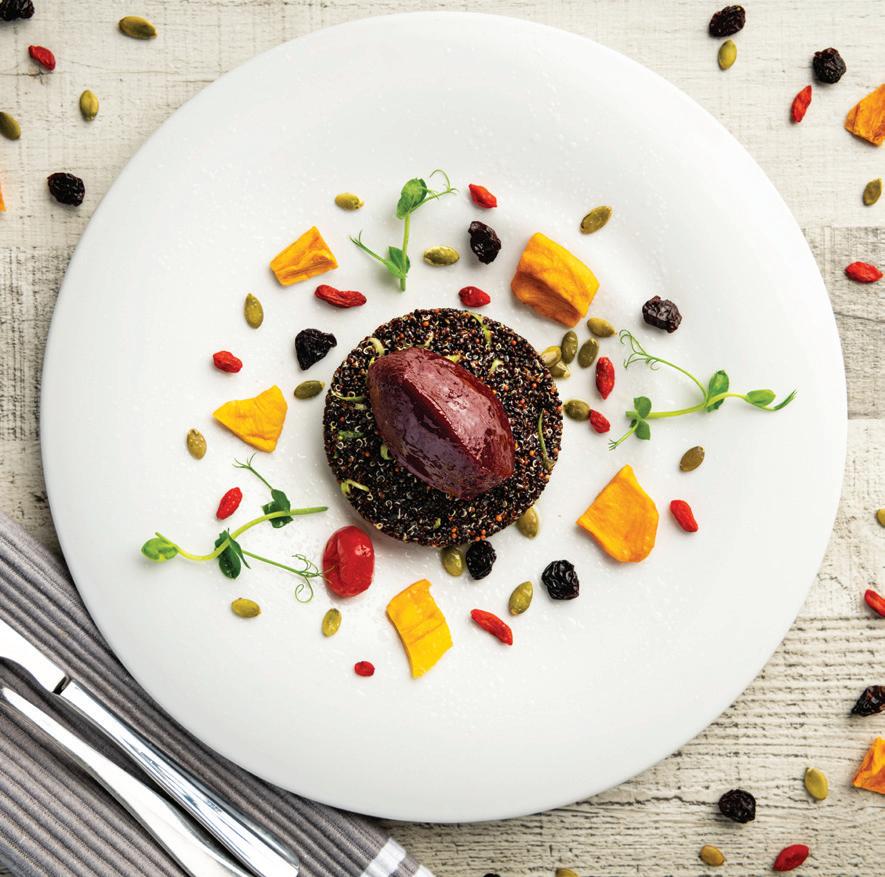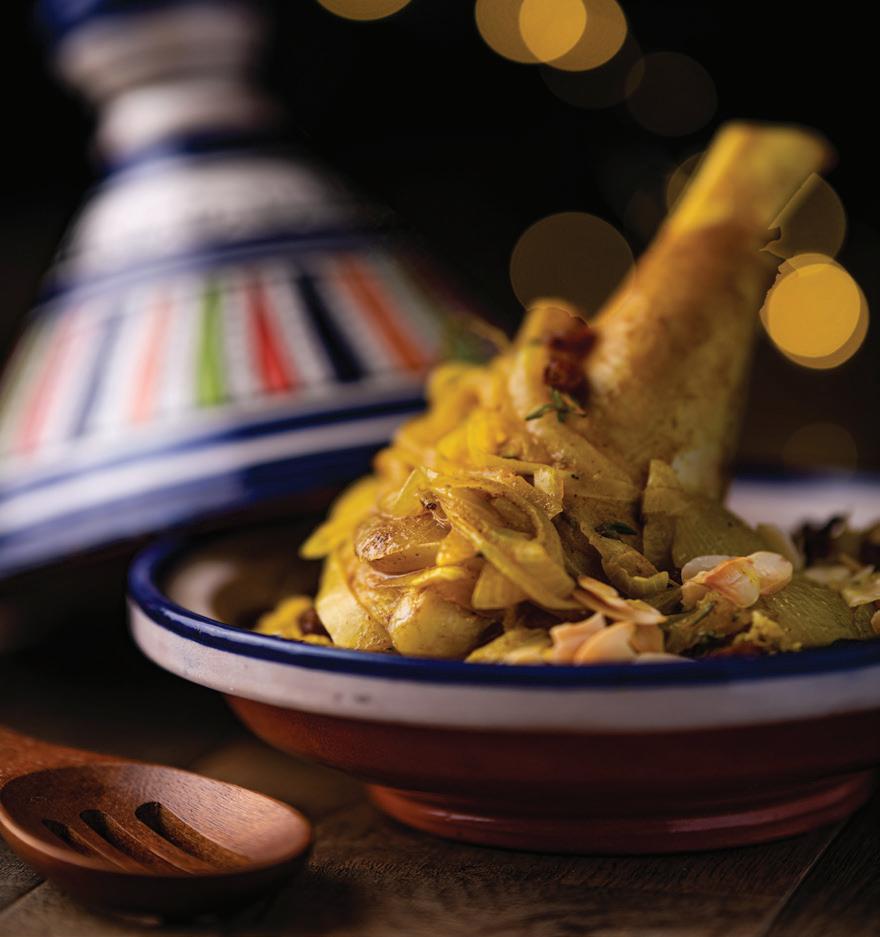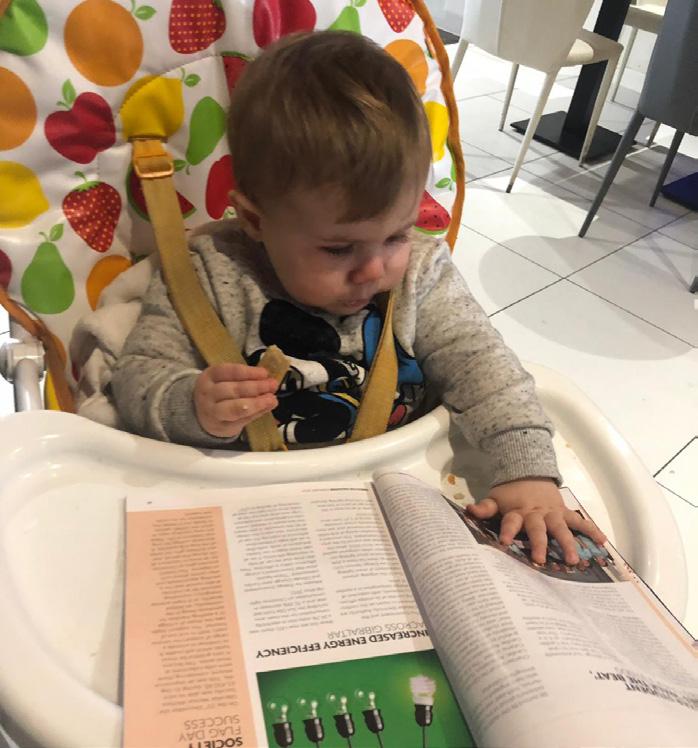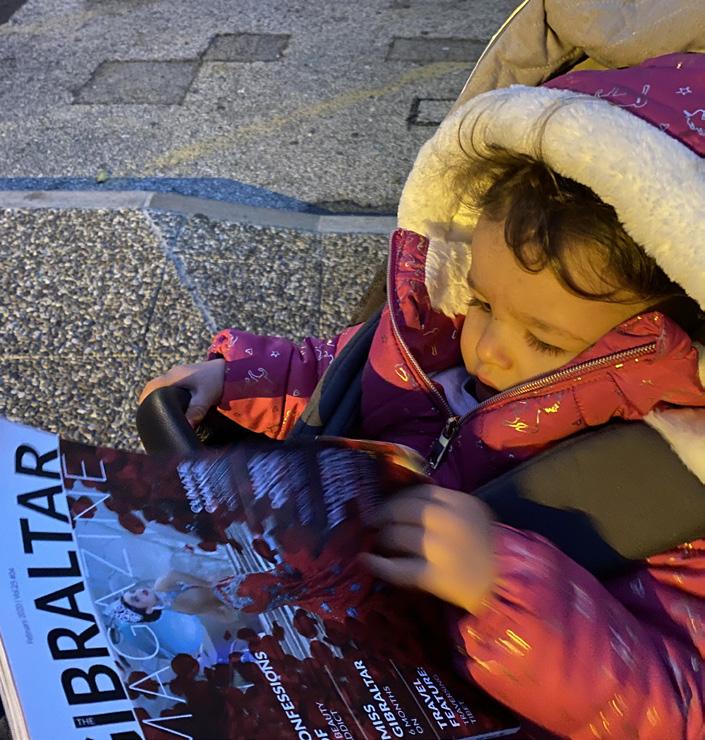
6 minute read
Tasting Victory
Above all, this book is about succeeding against all odds. The story is told by Gerard Basset OBE who having failed at school, penniless and speaking no English arrives in Liverpool to watch Etienne his football team. Gerard is so fascinated by the English, who he finds friendly and welcoming, that he decides to move to the U.K. much to the derision of his friends. From his humble beginnings in France Gerard takes us on a fascinating journey from school drop-out, failed factory worker, delivery man and disastrous clothes shop assistant to becoming the most acclaimed wine personality of his generation. TASTING VICTORY
Gerard went on to become the only person alive to hold both the notoriously difficult Master of Wine and Master Sommelier simultaneously. He was to co- found the hotel chain Hotel du Vin.
This book shows us, given hard work and commitment, anything is possible.
BY ANDREW LICUDI DIPWSET
Humble Beginnings “Despite their mutual loathing my parents produced three children. There were times they argued so badly they would both end up with bloody faces. My parents were not monsters; they did all their damage to each, not to us.”
Gerard was destined to fail at school and he did. Leaving school, he embarked on a series of jobs. He rarely lasted, seemingly illsuited or worse incompetent. He did however grow up with an interest in food sparked by clafoutis (classic French cherry cake) and chicken’s blood!
“One day, Rimi grabbed one of his chickens, knocked it dead and then pierced the head with a sharp knife. Remi filled a glass with the blood, which he left to thicken in the fridge for a few hours. Later, he pan-fried the solid chicken blood in small cubes with parsley and garlic. The result, which he called sanguette, was delicious.”
Life was about to change……
“I loved the St Etienne football team but my father considered footballers idiots running after a ball.”
Gerard’s decision to travel to Liverpool to watch Etienne get beaten by Liverpool 3-1 was to change his life.
“During the following few days I could not stop reminiscing about the wonderful experience I had enjoyed in Liverpool and quickly I made my mind up. I would go to live in England. I had fallen in love with the country.”
Gerard found out that finding work in Liverpool was not that simple. He had no previous experience and his English was almost non-existent. Eventually he managed to get an interview for work as a commis waiter at a family- run hotel in Lyndhurst.
“The officer warned me, however, not to tell the interviewer that I had never done the job before. Instead he advised me to make up a story about doing a summer job as a waiter whilst in France.”
As a lowly commis waiter in The Crown, Gerard establishes a pattern of work which will define his personality for the rest of his life. He decides to excel at the hospitality industry - voluntarily working extra hours in exchange for learning as much as possible. In his spare time, he goes into Southampton and buys books on food and its presentation.
“I remember buying an English book about the daily routine in the three-Michelin-star restaurants of France. It was not so much about the cooking, but more about how each restaurant had reached the top, including their philosophy.”
Fascinated by the ideals of Michelin star restaurants Gerard books himself into Paul Bocuse’s 3-star restaurant on the outskirts of Lyon when visiting his sister.
“When I arrived, everything was as I had seen in the book. Each table was beautifully set with lovely plates for each person and sparkling cutlery.”
Gerard was fascinated by the truffle soup, sea bass with a lobster mousse and the enormous cheese platter. More than anything Gerard was fascinated watching the waiters and other front-of-house staff working to the highest standards.
Back at Lyndhurst, Gerard is promoted to head waiter. Here something happens which will change his life. A student on work experience, assuming that all Frenchmen know about wine, asks him to explain noble rot in wine (a beneficial rot critical to the production of sweet Sauterne). Gerard didn’t know either.
Lyndhurst’s only bookshop and bought a wine book which had a lot of information on the basics of wine product ion. I read it from cover to cover.”
Gerard then heads back to France to learn about wine and take the CAP Restaurant exam which he passes.
It was not long before Gerard decides that wine will be his life.
Gerard takes us through a fascinating journey on becoming a Master Sommelier and Master of Wine. It’s a gruesome description of the work and disappointments like working for Raymond Blanc in La Manoir de Quatre Saison 2-star restaurants and only lasting a week.
By chapter 9 Gerard is working as a Sommelier for the upmarket Chewton Glen. Here he tells us of one of the regular wine dinners were guests of honour were Masters of Wine or wine journalists. The star of the show was an Imperial (equivalent to 8 bottles) of the legendary Chateau Latour 1961.
“I had been worried all week about this Imperial. What if it was corked or I dropped it during decanting? We decanted the Imperial just before dinner; I had three people helping me. I was holding the Imperial bottle with the help of Joe Simonini while
Patrick Gaillard held the several decanters we needed. Everything went well. The Latour was stunning.”
It is a colleague from Chewton Glen, Robin Hutson, who suggests to Gerard they start their own hotel which was to become Hotel du Vin. Having no money, they decide they can attract investors from people they know and more importantly from people that know them! They went on to open several of the hotels as the hotels, with their strong food and wine theme, proved extremely successful.
If you have ever wondered what a Master of Wine is, or what it takes to win the Sommelier World championships or what’s involved in running a new hotel venture then this is the book for you.
I leave you with an excerpt describing the weekend before Gerard sits his Master of Wine practical exam where wines, tasted blind, have to be identified and technically assessed;
“For the whole weekend we blind tasted around 150 wines. This time we were not working on the reasoning, but simply on sharpening up our identification skills. For two days, we tasted all the wines blind, both in turn giving our opinion in what the wine in each bottle could be before unwrapping each one to discover the identity of the wine.”
‘Tasting Victory’ by Gerard Basset is published by Unbound, 70 Conduit Street London.
Indulge in our distinctive New à la carte menu, curated by award-winning Executive Chef, Alfred Rodriguez





Show Us Your Mag!


WINNER




Baby Ella Baby Leon
Want to enter our next competition? Snap a picture of you, your children (furry, scaly, feathery or human!) or your friends holding the magazine, and you could win a week's worth of meals at Supernatural!
(Competition ends 20th July. Winner announced in our August issue.)










